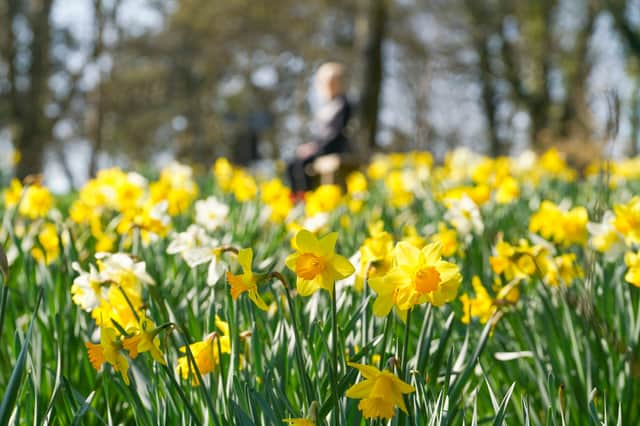
With the first day of spring 2023 rapidly approaching, it’s almost time to pack away the winter gloves and break out the shorts. Even though we’ve had a few glimpses of spring in recent months, and frigid weather is expected in New Jersey this weekend, the new season will officially begin on Monday, March 20, with the spring equinox. Spring 2023 officially begins Monday at 5:24 p.m. Eastern time, when the sun passes directly over the Earth’s equator — the central line connecting the North Pole and the South Pole — bringing nearly equal minutes of daylight and darkness all over the world. This is commonly referred to as the spring equinox, although it is also known as the March equinox or the vernal equinox.
Here are some more fun facts about the first day of spring – Spring Equinox
- The word equinox is made up of two Latin words: “equi” (the Latin prefix for “equal”) and “nox” (the Latin word for “night”). The vernal equinox was derived from the word “vernal,” which translates to “new” and “fresh,” according to the Farmers’ Almanac, a competitor publication of the Old Farmer’s Almanac.
- The equinox does not necessarily occur on the same day each year but always falls on one of three days in the northern hemisphere: March 19, March 20, or March 21. The first day of spring is usually March 20. However, the spring equinox in 2020 occurred on March 19. It reverted to March 20 in 2021, with the same date repeated in 2022 and 2023. According to timeanddate.com, the next time the spring equinox occurs on March 19 will be in 2024. And the next time it appears on March 21 will be in 78 years – in 2101.
- If you’re wondering why spring begins on different dates, remember that “a year is not an even number of days, and neither are the seasons,” according to Space.com. Thus it’s impossible to divide 365 days into four equal quarters and have an equal number of days in each season. In addition, the “earth’s elliptical orbit is changing its orientation relative to the sun, which causes the Earth’s axis to point in a different direction constantly,” the website says. “Since the seasons are defined as beginning at strict 90-degree intervals, these positional changes affect the time Earth reaches each 90-degree location in its orbit around the sun.”
- The beginning of this season is seen as a period of rebirth and regeneration in many cultures around the world. And certain major religious holidays, such as Easter and Passover, are timed to coincide with the spring equinox and a specific spring moon cycle. Christians will celebrate Easter Sunday on April 9 this year since it is the first Sunday following the first full moon of spring – Thursday, April 6.
- The Jewish holiday of Passover is always observed in early spring, but the Jewish calendar, like the Christian calendar, is related to lunar cycles. Hence, this year, Passover will begin on Wednesday evening, April 5, and end on Thursday evening, April 13.






